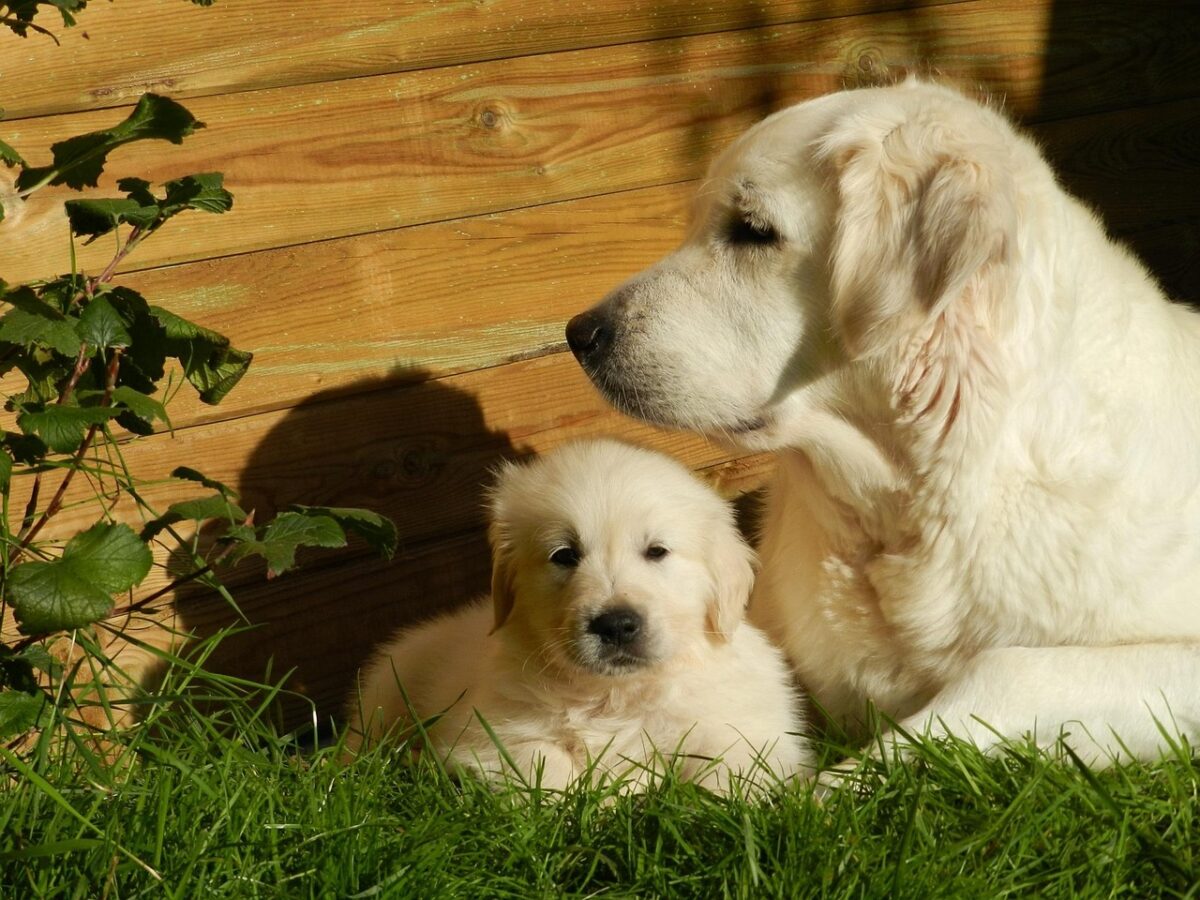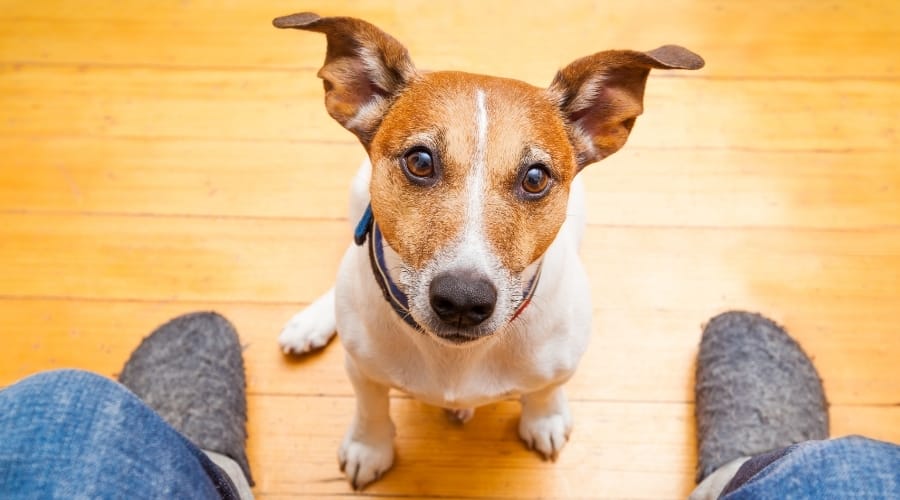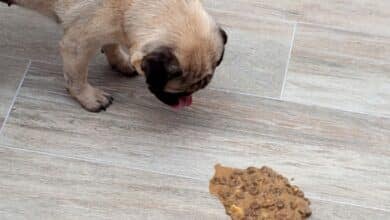Why Do Dogs Eat Other Dogs’ Poop? Facts, Dangers & Fixes
When you purchase through links on our site, we may earn a commission. Here’s how it works.
You’re enjoying a nice, peaceful walk when suddenly your dog dives headfirst into the unspeakable. Before you can react, they’ve swallowed it, tail wagging like nothing’s wrong. Meanwhile, you’re left wondering the question many dog parents eventually ask: Why do dogs eat other dogs’ poop?
Table of Contents
The good news? You’re not the only one dealing with this nightmare. Even better? Science actually has some answers.
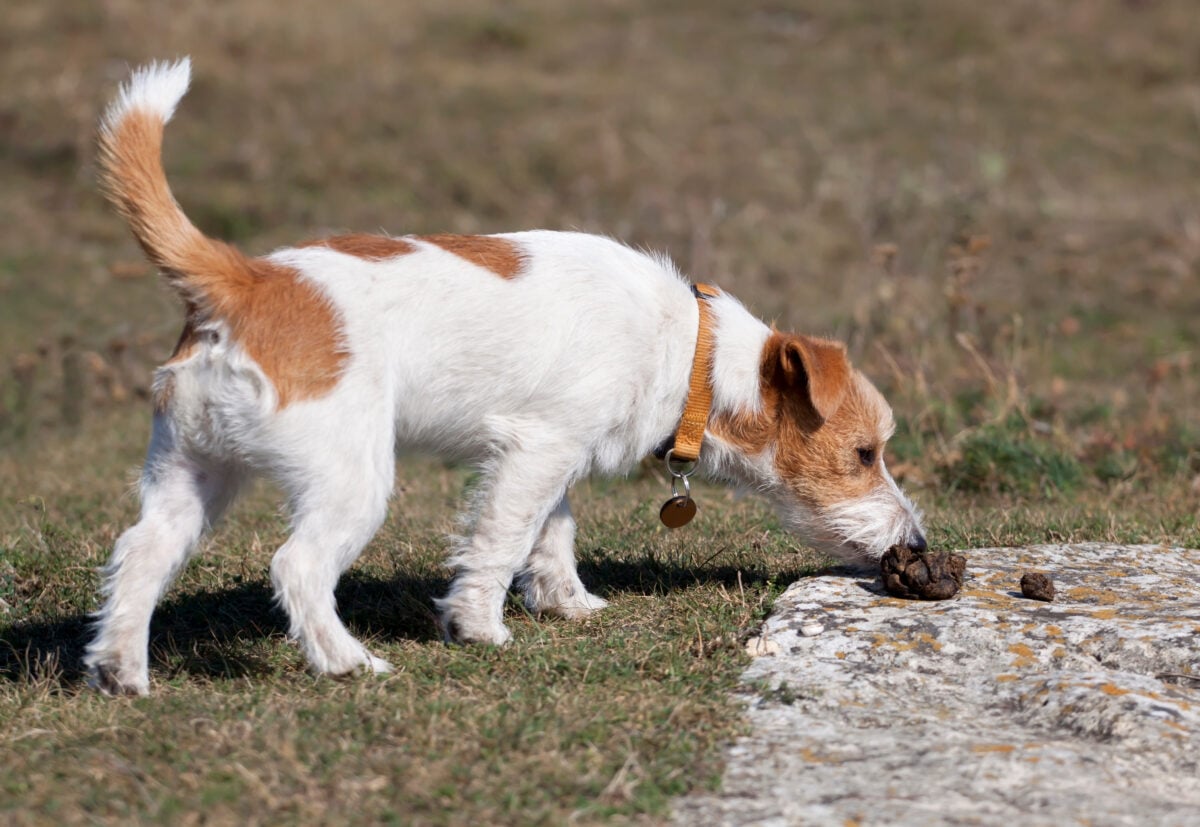
10 Reasons Dogs Eat Other Dogs’ Poop
According to a survey study published in Veterinary Medicine and Science in 2018, researchers led by Dr. Benjamin Hart, a board-certified veterinary behaviorist at the University of California, Davis, found that 16% of dogs sampled were serious poop eaters, consuming other dogs’ feces frequently.
It’s believed that dogs eat other dogs’ poop, a behavior coined coprophagia, due to a mix of instinctual, nutritional, and behavioral reasons.

1. A Leftover Survival Instinct
Long before kibble bowls and Amazon deliveries, wild canines survived by scavenging. When food was scarce, feces weren’t waste — the droppings were a second shot at calories and nutrients.
Some researchers believe this ancient behavior still lingers in domesticated dogs. Even though your Lab just ate a premium grain-free dinner, his DNA still whispers, “Never waste a chance at food.”
2. Mom Showed Them How
For the first few weeks of life, mother dogs lick their puppies clean and eat their feces. This isn’t some odd craving. It keeps the den sanitary and hides scents from predators.
Puppies raised watching mom do this sometimes don’t “unlearn” the behavior. It’s like kids who never stop biting their nails — it starts as instinct, then sticks as a habit.
3. Smells Like Leftovers
Dogs don’t share our disgust reflex. To them, poop can actually smell appetizing, especially if the other dog is on a protein-rich diet.
Research shows dogs are most attracted to stools that are less than 48 hours old, because fresher droppings contain more intact nutrients. To us, it stinks. To them? It smells like leftovers worth sampling.
4. Missing Nutrients Or Digestive Issues
Sometimes poop-eating isn’t about instinct; it’s about need. If your dog’s body isn’t absorbing nutrients well, feces can look like a “second pass” at dinner.
Possible culprits include:
- Pancreatic enzyme deficiency: Dogs with this condition (EPI) can’t produce enough enzymes to break down fat, protein, and carbs to be absorbed by the body.
- Intestinal parasites: Worms like roundworms or hookworms steal nutrients straight from your dog’s gut, leaving them hungrier and more likely to seek out extra calories from feces.
- General malabsorption disorders: Inflammatory bowel disease and other intestinal issues can prevent your pup from fully processing food.
- A poorly balanced diet: Low-quality kibble or homemade diets without proper formulation can leave nutritional gaps.
Vet Tip: If your dog suddenly develops this habit, or if it becomes obsessive, schedule a vet check. Simple bloodwork or stool tests can uncover hidden problems.
5. Boredom = Bad Choices
Dogs are smart. When they don’t get enough daily physical and mental stimulation, they invent their own hobbies like poop-eating. An under-exercised Husky may chew drywall. A bored Beagle may eat… well, droppings.
Both are cries for enrichment. Studies show dogs crave mental stimulation as much as physical exercise. Without it, they invent “games,” some destructive, some disgusting.
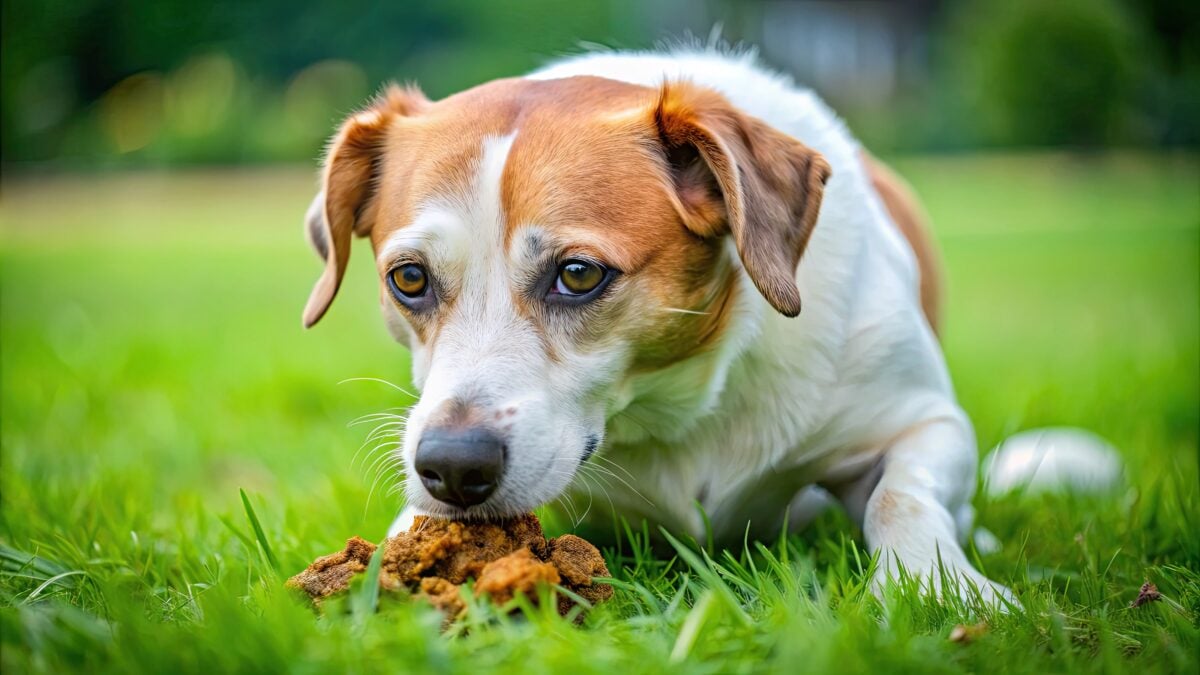
6. Drama = Attention
Dogs notice what gets a reaction. If every time your pup chomps, down you shriek, sprint over, or yank them away, they’ve learned one thing: poop-eating equals instant attention.
The fix? Don’t give them the drama. Quietly redirect and reward when they ignore the pile. To your dog, calm training beats your horrified reaction.
7. Underlying Medical Problems
Sometimes poop-eating isn’t just a quirky habit—it’s a red flag for something going on inside your dog’s body. Several health issues can trigger or worsen coprophagia:
- Diabetes: Dogs with diabetes often feel constantly hungry because their bodies can’t properly use glucose. That hunger may drive them to eat anything, including feces.
- Hypothyroidism: An underactive thyroid slows metabolism but can also disrupt appetite and digestion, sometimes leading to odd food-seeking behaviors.
- Cushing’s disease: Excess cortisol ramps up a dog’s appetite, making scavenging and poop-eating more likely.
- Liver disease: The liver processes toxins and nutrients. When it’s not working right, waste products can build up in the body, changing appetite and leading to unusual eating habits.
- Anemia: Dogs with low red blood cell counts often feel weak and crave non-food items, including feces, in an unconscious attempt to “fix” their deficiency.
- Dementia (Canine Cognitive Dysfunction): Senior dogs with dementia sometimes lose their normal sense of what’s appropriate to eat. Poop-eating can appear suddenly in older pets who never did it before.
If your dog’s poop-snacking is new and comes with weight loss, thirst changes, or energy dips, it’s time for a vet visit.
8. When It’s Not Just Poop: Pica
If your dog isn’t only eating poop but also gobbling up rocks, dirt, socks, or other non-food items, it could be a condition called pica. Unlike typical poop-snacking, pica is usually a sign of a deeper medical or behavioral problem.
- Medical causes: anemia, intestinal issues, or nutrient deficiencies.
- Behavioral causes: anxiety, stress, or obsessive-compulsive behaviors.
Pica can be dangerous — swallowed rocks or toys can cause intestinal blockages, which often require surgery. If your dog’s “weird snacking” goes beyond feces, call your vet. They may run bloodwork or imaging to rule out medical causes before tackling the behavioral side.
9. Living With A Sick Or Senior Dog
In some households, a healthy dog will start eating the stool of an older or sick companion, especially if that dog struggles with accidents.
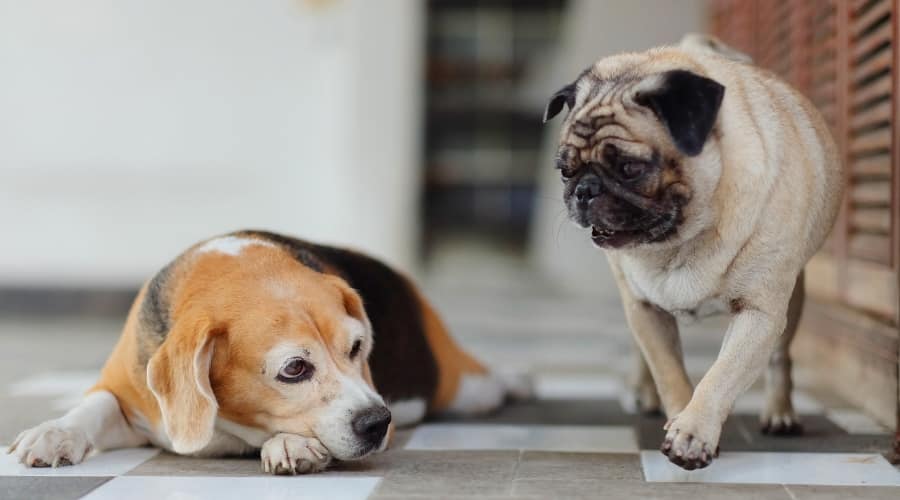
Experts suggest this comes from an ancient instinct to protect the pack. Cleaning up after weaker members kept predators from catching the scent.
At home, that survival drive translates into your younger dog “helping” their senior sibling. It’s not rebellion; it’s instinct.
10. Canine “Janitors” Don’t Like Messes
Dogs sometimes eat poop to tidy up their space, especially if they’re confined to small yards or not taken out enough. In multi-dog households, it can be a weird but practical form of housekeeping.
This is especially common in dogs who’ve been punished for accidents. By making the evidence disappear, they feel safer. In their mind, they’re problem-solving. In ours, it’s just another gross surprise.
Is It Dangerous If My Dog Ate Another Dog’s Poop?
If the idea of your dog eating poop isn’t bad enough, here’s a scarier truth: coprophagia can expose dogs to parasites, viruses, and bacteria. Some of these infections are mild, while others can be life-threatening. Puppies, seniors, and immunocompromised dogs are especially at risk.
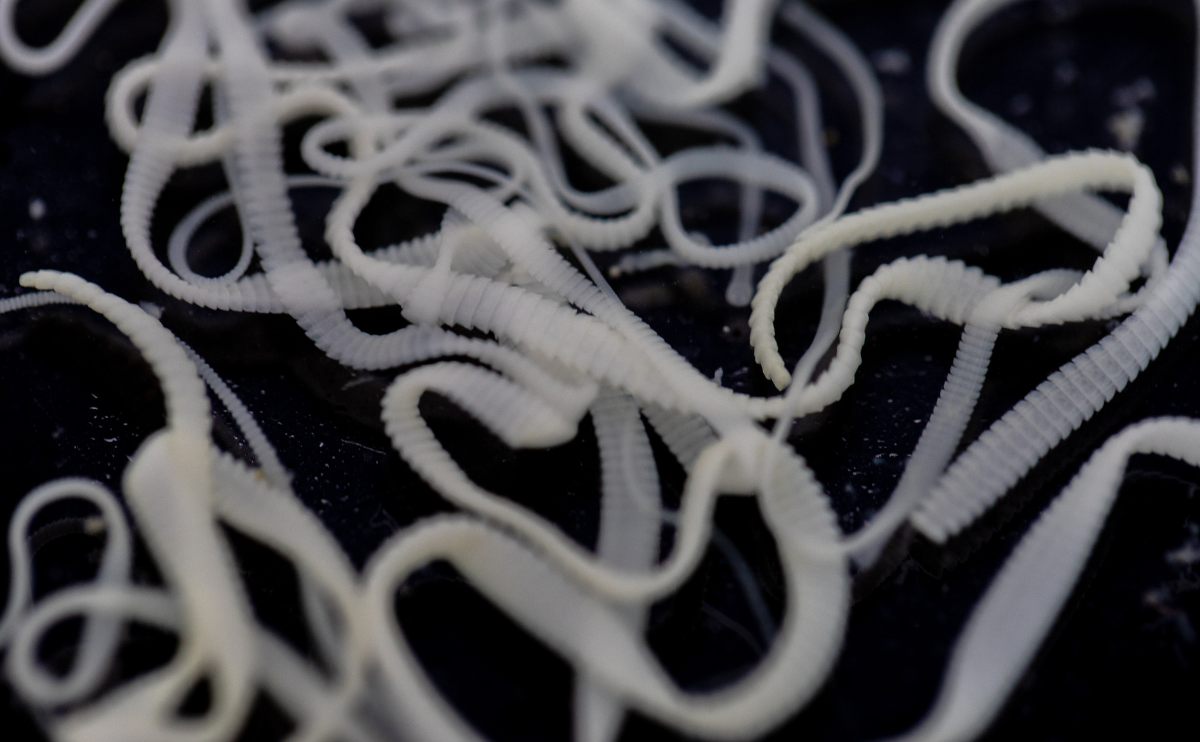
Creepy Crawlers In Feces
When dogs eat the feces of an infected animal, they risk ingesting live worms or eggs. Common offenders include:
- Hookworms – Tiny bloodsuckers that live in the small intestine. They cause anemia, weakness, and digestive upset. Hookworms can even infect humans.
- Roundworms – Lay thousands of eggs that survive in soil for years, making reinfection common. Roundworms are especially dangerous for puppies.
- Tapeworms – Flat, segmented worms that steal nutrients from your dog, often leading to weight loss and malnutrition.
- Whipworms – Live in the large intestine, triggering diarrhea, weight loss, and anemia. Eggs can survive in the environment for a long time, making reinfection common.
Important: All of these parasites require veterinary treatment or prevention — home remedies won’t cut it.
Microscopic Menaces
Not all poop-borne infections come from worms. Microscopic organisms called protozoa can cause severe intestinal disease:
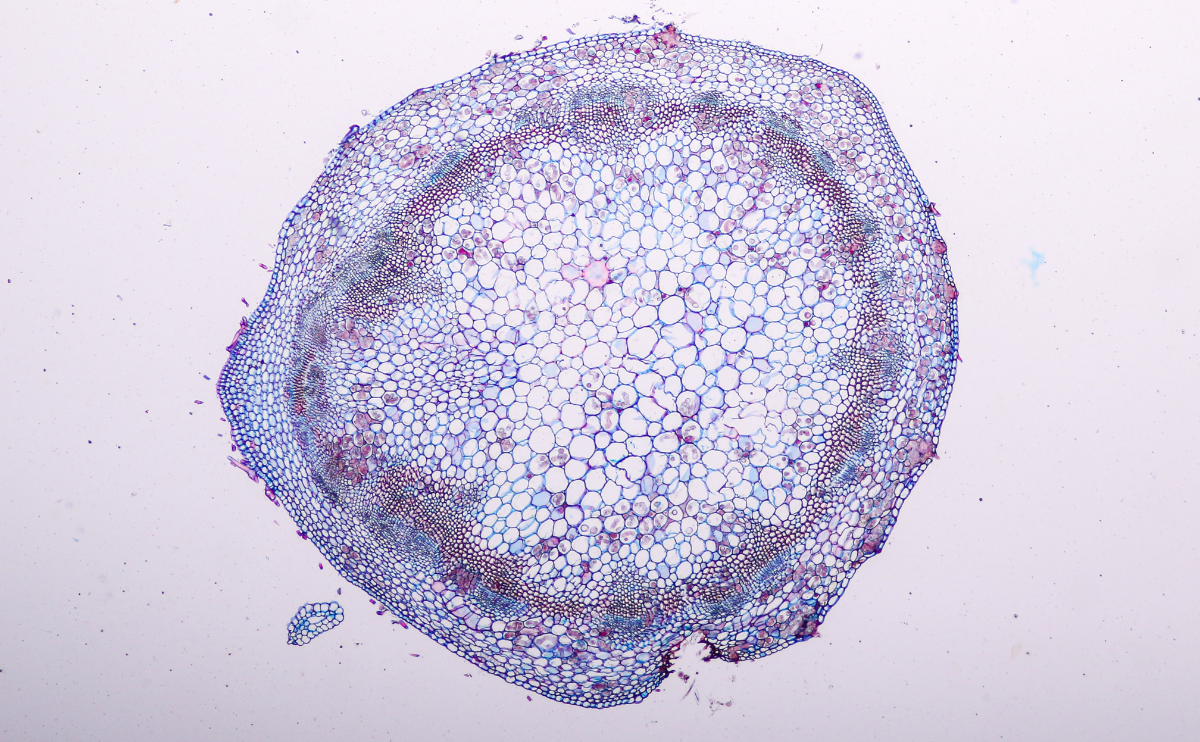
- Giardia – Known for causing watery, foul-smelling diarrhea. It spreads easily in kennels, dog parks, and multi-dog households.
- Coccidia – Common in puppies, leading to diarrhea and dehydration if untreated.
- Cryptosporidiosis – Can cause severe, prolonged intestinal upset. It’s also zoonotic, meaning humans can catch it.
The Germs That Linger In Poop
Feces doesn’t just carry parasites. It can harbor viruses and bacteria that linger in the environment for weeks or months.
- Parvovirus – A leading killer of puppies, parvo causes vomiting, bloody diarrhea, and dehydration. Even with treatment, it can be deadly.
- Infectious Canine Hepatitis (Adenovirus 1) – Adenovirus is spread through feces, urine, and saliva. This virus causes inflammation of the liver. There’s no cure—only supportive care.
- Salmonella – Causes diarrhea, fever, and abdominal pain. Dogs can pass it to humans, making it a household risk.
- E. coli – Some strains cause severe diarrhea and cramping in dogs. Like Salmonella, it can spread to people.
- Campylobacteriosis – A bacterial infection that leads to severe diarrhea, especially in puppies. It’s also zoonotic, meaning people can catch it too. Good hygiene (handwashing, disinfecting, quick cleanup) is key.
Important: Make sure you keep your pup’s vaccinations up to date. The DHPP vaccine provides immunity for parvovirus and adenovirus, as well as canine distemper virus and parainfluenza.
Is Coprophagia Ever A Medical Emergency?
Most cases aren’t, but sometimes, yes. Call your vet right away if your dog shows:
- Vomiting or diarrhea
- Blood in stool
- Sudden lethargy
- Loss of appetite
If you know the poop they ate came from a sick dog or an unknown source, it’s better to err on the side of caution.
6 Tips On How To Stop Poop-Eating (Without Losing Your Sanity)
Breaking the habit of poop-eating takes patience and consistency. The good news? Most dogs can be redirected with the right mix of training, management, and enrichment. These strategies not only cut down on gross snack attacks but also improve your dog’s overall behavior and well-being.
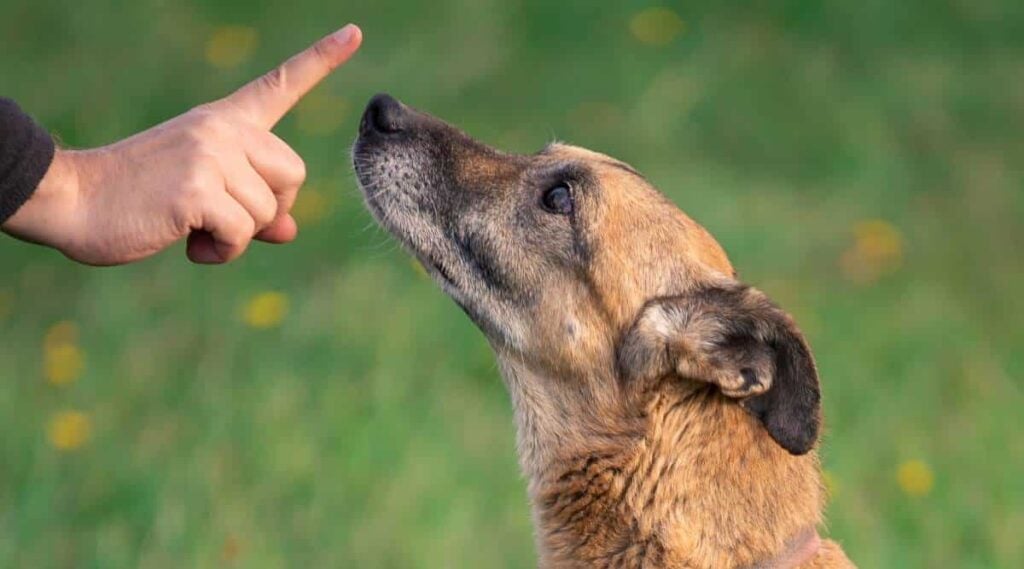
Here are six ways to get started:
1. Get Professional Advice
Sometimes poop-eating is a sign of something deeper. That’s why the first stop should always be your veterinarian. A full checkup can rule out (or diagnose) underlying issues like parasites, malabsorption, or other medical conditions.
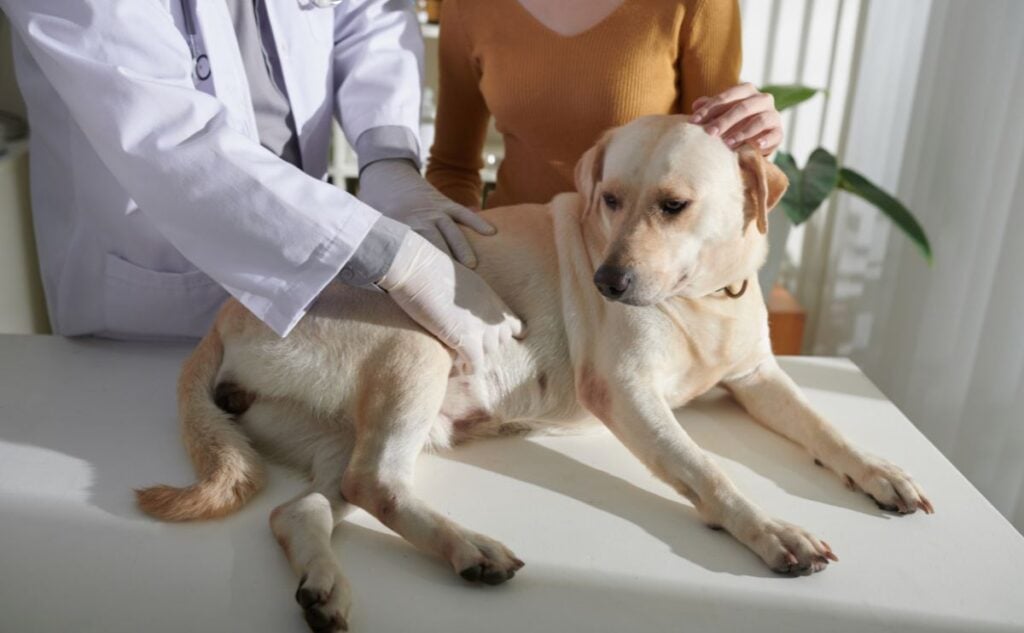
If your dog also shows red flags such as weight loss, lethargy, or blood in the stool, a vet visit is non-negotiable.
Once medical problems are off the table, the next step is behavior. Some dogs need more than at-home training; they need structured guidance from a professional. A certified trainer or veterinary behaviorist can:
- Pinpoint the root cause (boredom, anxiety, attention-seeking)
- Design a custom training plan for your dog
- Teach you techniques to manage the behavior consistently
For busy owners or those without local resources, online training courses are a great option. They allow you to work at your own pace while getting expert advice.
Pro Tip: Check whether your pet insurance covers training or behavioral consultations. Some plans do, especially if it’s tied to a diagnosed medical or behavioral condition.
2. Teach A Rock-Solid “Leave It”
This is your number one tool for walks. Once your dog understands “leave it,” you’ll have a reliable way to steer them away from temptations before disaster strikes.

How to teach it:
- Hold a treat in a closed fist. Let your dog sniff, lick, paw, or nudge. Say nothing.
- The second they back off, mark the behavior (“Yes!” or a click) and reward with a treat from your other hand.
- Level up: place a treat on the floor and cover it with your hand. Only reward when your dog backs off. Gradually uncover the treat, then practice outdoors with distractions.
With enough practice, “leave it” becomes second nature — a lifesaver when you spot a suspicious pile mid-walk.
Pro Tip: Practice “leave it” with different temptations, like food, toys, even dropped crumbs, so your dog generalizes the command to poop, too.
3. Control The Environment
Sometimes prevention is the simplest solution. The less access your dog has, the less opportunity there is to practice the habit.
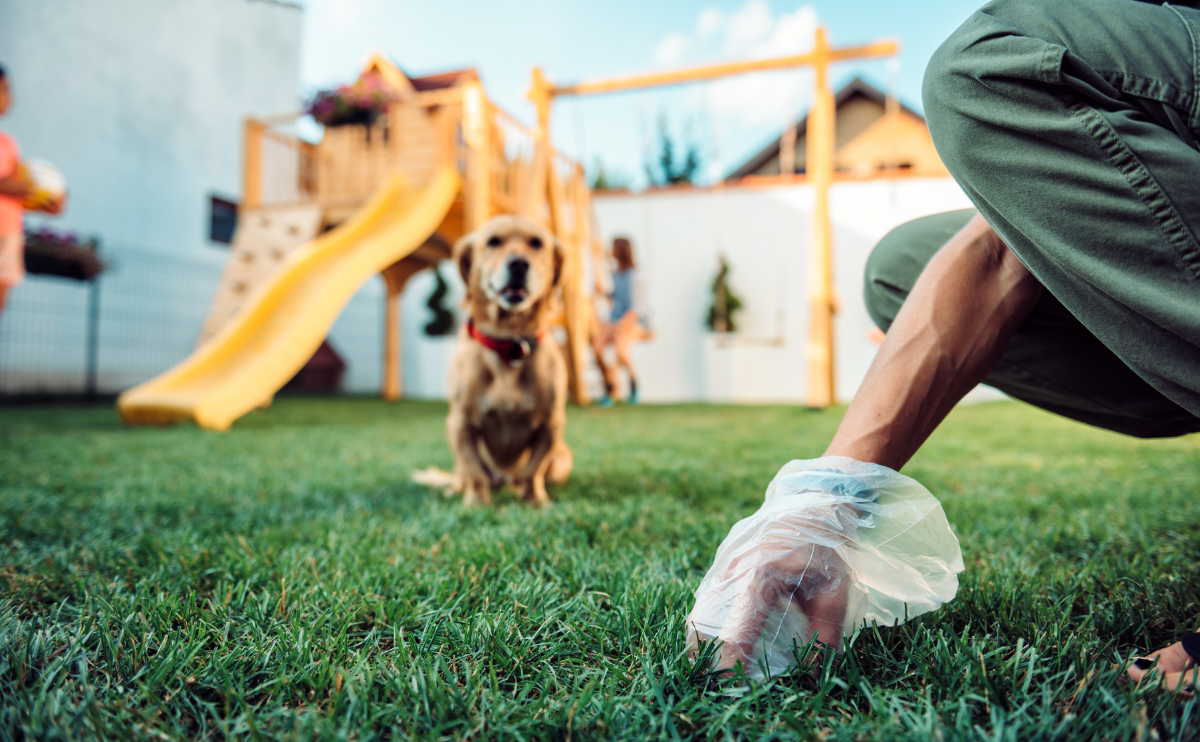
- Pick up poop in your yard as quickly as possible.
- At dog parks, steer clear of corners where feces tend to pile up.
- Keep your dog on a shorter leash in high-risk areas so you can redirect before they dive nose-first.
Managing the environment won’t “fix” the habit alone, but it reduces temptation while you work on training.
4. Fix Diet Gaps
Some dogs eat poop because their body isn’t getting or absorbing what it needs. Even if your dog’s food is high-quality, digestive issues can leave nutrients behind in feces, making it smell edible.
Talk with your vet about adding:
- Probiotics to balance gut bacteria.
- Digestive enzymes help break down food more efficiently.
- Extra fiber (like canned pumpkin puree) to make meals more filling and reduce scavenging urges.
Did You Know? Dogs with exocrine pancreatic insufficiency (EPI) are notorious poop-eaters until they’re treated with enzyme supplements. Always rule out medical causes if the habit starts suddenly.
5. Beat Boredom Before It Starts
Boredom can be one of the biggest triggers for poop-eating. A dog with too little to do will invent their own entertainment, sometimes in the form of “gross hobbies.”
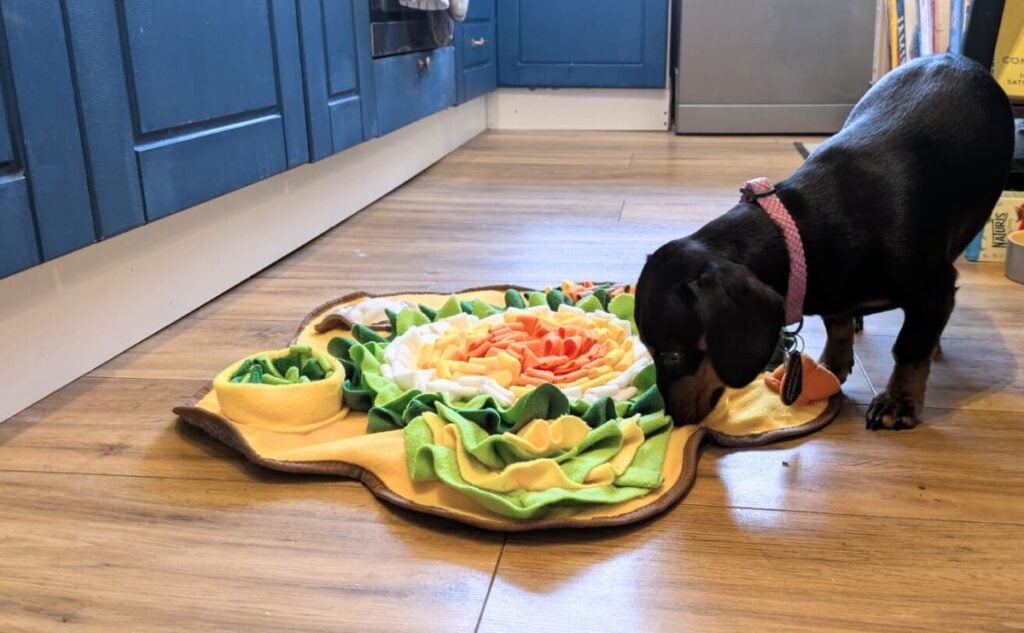
Ways to fight boredom:
- Offer food puzzles, lick mats, or snuffle mats for mealtime.
- Rotate interactive toys every few days to keep things novel.
- Schedule more exercise, especially activities that challenge both body and brain.
- Incorporate nose work: hide treats around the house or yard and let your dog sniff them out.
6. Try Taste Deterrants
For some dogs, poop-eating is about flavor. If that’s the case, you can theoretically make the “snack” less appealing. For multi-dog households (or for dogs who eat their own poop), some people swear by pineapple or commercial supplement deterrents.
However, the science isn’t so sure.
In a 2008 study published in the Journal of Applied Companion Animal Behavior, researchers found that poop-eating deterrent medications, like For-bid and Deter, had very mixed results. However, younger canines responded better to medication than older ones.
The most effective “treatments?” Preventing access to feces was the most effective way of stopping the behavior, followed by rewarding good behavior and distracting the canine from the feces.
Quick Fix Checklist: 6 Ways to Stop Poop-Eating
With these six strategies, you’ll have a full toolkit for tackling poop-eating and keeping your sanity intact.
- Start with a vet check to rule out medical causes.
- Teach a reliable “leave it” command.
- Manage the environment: clean yards, avoid poop zones.
- Fix diet gaps with probiotics, enzymes, or fiber.
- Beat boredom with sniffing games, toys, and exercise.
- Try taste deterrents like pineapple or For-Bid.
What The Science Says About Poop Eaters
For puppies, poop-eating is usually just part of their “everything goes in the mouth” exploration stage. While most pups are content to sniff and investigate droppings, some can’t resist taking things a step further and giving them a taste test.

Here are some curious (and slightly gross) facts that Benjamin and Lynette Hart found in their study of canine poop eaters:
- Other dogs’ poop is more appealing. About 85% of study subjects were happy to sample another dog’s droppings but avoided their own.
- Texture matters. Dogs are far less likely to touch loose or watery stool. What really grabs their attention? Firm, well-formed poop—and frozen droppings rank high as a favorite.
- Fresh is “best.” Around 92% of poop-eating dogs prefer it no more than one or two days old.
- More dogs, more poop eaters. In single-dog households, only about 1 in 5 dogs develops this habit. In homes with three dogs, that number jumps to 1 in 3.
- Training isn’t the issue. Dogs who eat poop aren’t any harder to housebreak than non-poop eaters.
- Gender differences. Female dogs are more prone to it, while intact males are the least likely offenders.
- Food thieves are often poop eaters. Dogs who swipe food off tables or counters are more likely to indulge in this behavior.
Breeds Most Prone To Coprophagia
Not all dogs are equally tempted by poop. In fact, the 2018 Hart study broke down results by breed and found some clear trends. Hounds and Terriers topped the list as the groups most likely to eat feces.
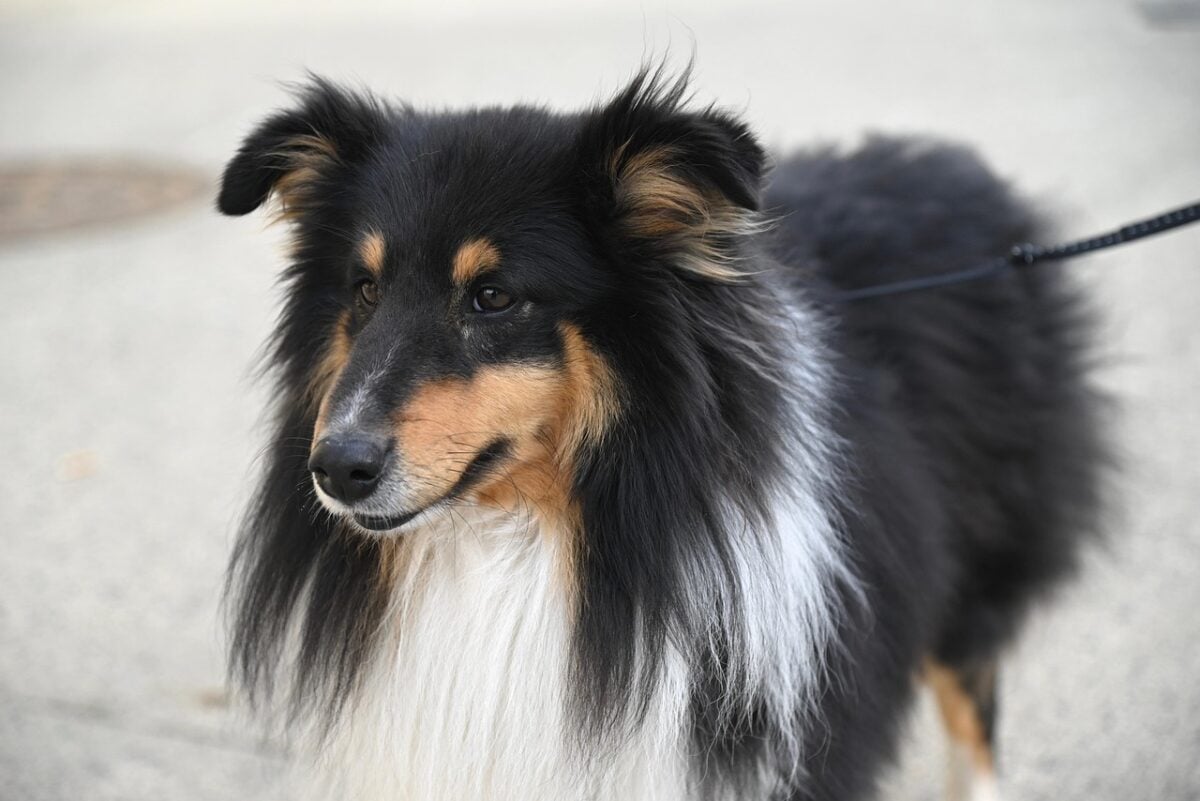
Why these groups? Hounds were bred to track, trail, and scavenge, often using their powerful noses to sniff out anything remotely edible. Terriers, on the other hand, are known for their intense energy and curiosity. Put that together with a lack of impulse control, and you’ve got the perfect recipe for poop-snacking.
When looking at specific breeds, the study found:
- Shetland Sheepdogs were the worst offenders, showing the highest rates of coprophagia. Their herding background may make them more prone to “clean-up” behaviors.
- Other high-ranking breeds included several types of Terriers, Basset Hounds, and Beagles — dogs with strong noses or high prey drive.
- Poodles (all sizes), surprisingly, were among the least likely to indulge. Their fastidious nature and selective tendencies may protect them from developing the habit.
Frequently Asked Questions
Still have questions? You’re not the only one. These are some of the most common (and most Googled) concerns from dog parents. If you don’t see yours here, drop it in the comments — we’d love to hear from you.
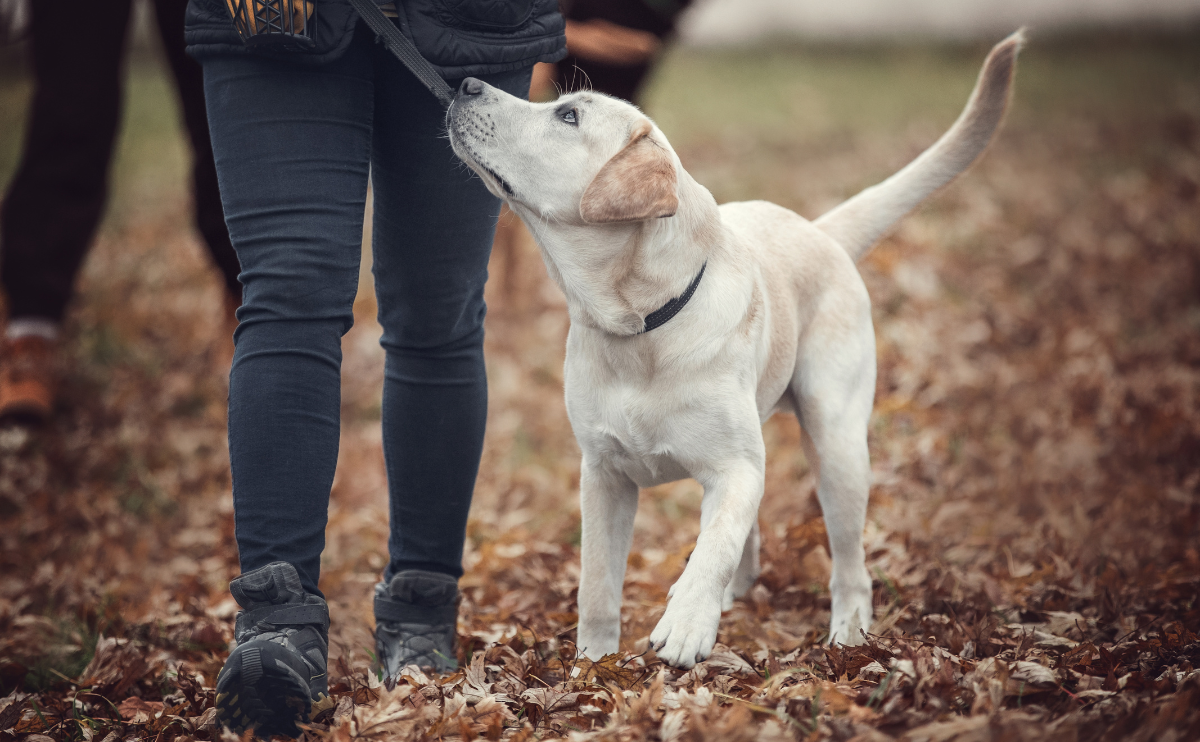
Why Do Puppies Eat Poop?
Puppies are curious about everything — sticks, socks, dead leaves, and yes, poop. Exploration is part of learning, and their mouths are like hands. On top of that, many puppies copy their mom. Since mother dogs lick and eat their puppies’ feces to keep the den clean, the habit sometimes carries over.
Most pups grow out of it as they mature, especially with consistent training and redirection. If your puppy is obsessed, rule out nutritional issues with your vet and make sure boredom isn’t driving the behavior.
Why Does My Dog Eat Other Dogs’ Poop On Walks, But Not At Home?
Many owners notice this pattern. At home, your dog may ignore their own poop, but on walks? Suddenly, it’s a buffet. That’s because other dogs’ feces smell different and may contain undigested nutrients or enticing scents from diet variations.
It’s also a novelty factor. At home, the poop is predictable. On walks, it’s something “new.” Think of it like your dog ignoring kibble dust at home but begging for table scraps when you’re out to eat.
Is Eating Poop Harmful To My Dog?
It can be. Not all poop is created equal. Your dog might get lucky and have no symptoms, but the risks include:
- Parasites (roundworms, whipworms, hookworms)
- Bacteria (Salmonella, Campylobacter, E. coli)
- Viruses (parvovirus, adenovirus)
Even if symptoms don’t show right away, a vet can check for parasites or infections before they escalate.
Why Does My Dog Eat Cat Poop, Too?
If you have cats at home, you may have noticed your dog raiding the litter box like it’s a snack bar. Cat poop is especially appealing because feline diets are higher in protein and fat. To your dog’s nose, it smells like concentrated kibble.
Aside from being gross, it’s risky. Cat feces can carry Toxoplasma gondii and other parasites. The solution? Cover or relocate the litter box so your pup can’t access it.
How Do I Stop My Dog From Eating Poop Outside?
Prevention is a mix of training, management, and sometimes diet tweaks:
- Train “leave it” so you can redirect mid-walk.
- Use a short leash in high-risk areas like dog parks.
- Pick up poop quickly if you have multiple dogs at home.
- Ask your vet about probiotics or digestive enzymes if nutrient absorption is a concern.
Consistency is key. Every time you successfully redirect your dog and reward them, you’re teaching them that poop is not worth it.
Should I Punish My Dog For Eating Poop?
No, punishment often backfires. Dogs don’t connect the punishment to the act the way we think they do. In fact, scolding may increase stress and make the problem worse.
Instead, use positive reinforcement. Catch your dog ignoring poop? Praise and reward. Train alternative behaviors like “leave it” or “look at me.” Over time, they’ll learn poop is boring compared to treats and praise.
Why Stop At Poop? Other Weird Things Dogs Eat
If you’ve ever wondered why your dog eats things they really shouldn’t, you’re not alone. We’ve got guides on vomit-eating, dirt-snacking, and other strange canine cravings. Because when it comes to dogs, “gross” is often just another word for “normal.”
Tired of playing poop police on walks? With the right mix of training, management, and vet insight, you can finally break the habit. Share your own poop-eating stories (and wins!) in the comments. We’d love to hear how you’re tackling it.
